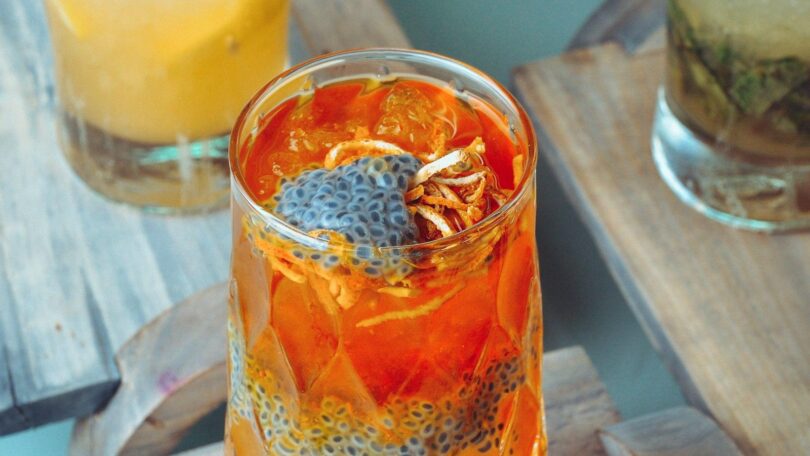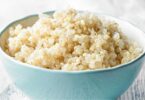Unveiling the intricate dance between sweetness and health, we embark upon an exploration that reveals a hidden adversary lurking within the realm of diet sodas. As we dive into the depths of this captivating subject, we encounter a perilous revelation: a danger cloaked in a deceiving halo of sugar-free allure. Brace yourself, for a captivating journey awaits us, uncovering the dangerous truth that may forever reshape the way diabetics perceive their beloved diet sodas. In this insightful article, we delve into the unseen shadows that cast an ominous cloud over the world of artificial sweeteners, unravelling the mysterious detriments they pose, specifically targeting those living with diabetes. Brace yourselves, dear readers, for the unraveling of diet soda’s silent assault on the health of diabetics promises to be an eye-opening revelation like no other.
Diet Soda and its Appeal: A Hidden Hazard for Diabetics
Diet soda has long been marketed as a healthy alternative to regular soda, especially for those with diabetes. With its zero sugar and lower calorie content, it may appear to be the perfect choice for diabetics looking to satisfy their sweet tooth without jeopardizing their blood sugar levels. However, beneath its seemingly innocent facade lies a hidden hazard that can have detrimental effects on the health of individuals with diabetes.
One of the primary concerns associated with diet soda consumption for diabetics revolves around its artificial sweeteners. These sugar substitutes, such as aspartame, saccharin, and sucralose, are used to provide the sweet taste without the added sugar. While they might seem harmless, studies have suggested that these artificial sweeteners can potentially disrupt blood sugar regulation and insulin sensitivity, leading to increased blood sugar levels. This can be particularly problematic for individuals with diabetes, as maintaining stable blood sugar levels is crucial for their overall well-being.
Furthermore, the deceptive nature of diet soda can mislead individuals with diabetes into a false sense of security. Believing that they are making a healthier choice, they may be more inclined to indulge in larger quantities or pair their diet soda with other sugary foods or high-carbohydrate meals. This can result in an unintentional spike in blood sugar levels, leading to adverse health effects in the long run.
Another significant concern associated with diet soda consumption is its potential impact on weight management, a crucial aspect for individuals with diabetes. While diet soda may offer fewer calories than its regular counterpart, some studies suggest that it may still contribute to weight gain and obesity. Paradoxically, this can worsen the symptoms and complications of diabetes, such as insulin resistance and cardiovascular diseases. The exact mechanism behind this phenomenon is not yet fully understood, but it raises significant concerns regarding the suitability of diet soda for those with diabetes.
In addition to blood sugar regulation and weight management, diet soda’s hidden hazards extend to other aspects of diabetic health as well. Some research suggests that these artificially sweetened beverages may increase the risk of metabolic syndrome, a cluster of conditions that heighten the likelihood of heart disease, stroke, and type 2 diabetes. This alarming connection warrants further investigation into the potential long-term effects of diet soda consumption on the health and well-being of individuals living with diabetes.
It is crucial for individuals with diabetes to approach diet soda with a critical eye and an understanding of its hidden hazards. While it may offer a seemingly tempting sugar-free solution, its potential negative impacts on blood sugar control, weight management, and overall health cannot be overlooked. Consulting with healthcare professionals can provide valuable insights into suitable alternatives and healthier choices more aligned with the needs of those with diabetes. Awareness and informed decision-making can empower individuals with diabetes to navigate the nutritional pitfalls and find a balanced approach to their dietary habits.
Understanding the Impact of Artificial Sweeteners on Blood Sugar Levels
Artificial sweeteners have become a staple ingredient in many diet sodas, promising a guilt-free and sugar-free alternative to those with diabetes. However, a closer look reveals the hidden dangers lurking beneath the seemingly innocent bubbles. For individuals with diabetes, where blood sugar control is paramount, is crucial.
Contrary to popular belief, artificial sweeteners do have an effect on blood sugar levels, albeit indirectly. These synthetic compounds may not directly raise blood sugar levels like traditional sugars, but they can still trigger an insulin response in the body. Insulin is the hormone responsible for regulating blood sugar, and when stimulated, it can lower blood sugar levels. So, even though artificial sweeteners are non-caloric, they can still potentially disrupt blood sugar management.
The perplexing part about the impact of artificial sweeteners on blood sugar levels lies in the individual response. Burstiness takes center stage as the reaction to artificial sweeteners differs from person to person. While some individuals may experience a negligible impact on blood sugar levels, others may witness a significant spike. The specific characteristics of each artificial sweetener compound, combined with a person’s unique physiological response, contribute to this burstiness.
For diabetics, understanding the various artificial sweeteners and their potential impact on blood sugar levels is key to managing the condition effectively. Here are some commonly used artificial sweeteners and their effects:
- Aspartame: This widely used artificial sweetener is known for its low-calorie content. While it does not raise blood sugar levels, some studies suggest that it may trigger an insulin response in certain individuals, potentially affecting blood sugar management.
- Sucralose: As another popular artificial sweetener, sucralose is generally considered safe for diabetics. It does not impact blood sugar levels and is not associated with an insulin response, making it a viable option for those managing diabetes.
- Saccharin: Saccharin is one of the oldest artificial sweeteners and is often used in products targeted towards diabetics. It does not affect blood sugar levels and is generally well-tolerated.
- Stevia: Derived from the stevia plant, this natural sweetener has gained popularity as a diabetic-friendly option. It does not raise blood sugar levels and has no impact on insulin, providing a sweet alternative for those with diabetes.
Understanding the intricate relationship between artificial sweeteners and blood sugar levels empowers individuals with diabetes to make informed dietary choices. It is advisable to monitor blood sugar levels carefully after consuming any food or beverage containing artificial sweeteners, as the response can vary unpredictably. Consulting with a healthcare professional, such as a registered dietician, can provide personalized guidance on managing blood sugar levels and optimizing overall health.
The Paradox of Diet Soda: Does it Really Help Manage Diabetes?
When it comes to managing diabetes, there is often an ongoing quest for the perfect beverage. One that can satisfy a sweet tooth without wreaking havoc on blood sugar levels. Enter diet soda – the seemingly magical elixir that promises the taste of the sugary drink we love, without the harmful effects. But is it truly a blessing for those with diabetes, or could it be hiding an unseen danger?
On the surface, diet soda appears to be a savior for individuals with diabetes. By substituting sugar with artificial sweeteners, it provides the illusion of indulgence without the skyrocketing blood sugar levels that traditional soda can cause. This allure is further enhanced by the idea that consuming diet soda can aid in weight loss, another crucial element in diabetes management.
However, the paradox lies in the fact that diet soda may not be as beneficial as it initially seems. Although it is free from sugar, it is not exempt from criticism. Research has indicated that frequent consumption of diet soda may be associated with an increased risk of developing metabolic syndrome, a cluster of conditions that includes high blood pressure, insulin resistance, and obesity. These are all factors that individuals with diabetes strive to avoid.
One potential explanation for this paradoxical phenomenon is the artificial sweeteners used in diet soda. Despite having zero calories, these substitutes can disrupt the body’s natural ability to regulate blood sugar levels. When our taste buds detect sweetness from diet soda, our brains send signals to release insulin, the hormone responsible for lowering blood sugar. However, since diet soda contains no sugar, this can lead to a mismatch between the body’s insulin release and the absence of glucose in the bloodstream, potentially causing blood sugar levels to plummet.
Moreover, the association between diet soda consumption and weight gain cannot be ignored. Although diet soda may seem like the wiser choice for those watching their waistlines, studies have shown that it can actually lead to an increase in cravings for sweets and contribute to overeating. The concept of “compensatory eating” suggests that when we consume low or zero-calorie beverages, our bodies compensate by seeking out additional sources of energy, often in the form of higher-calorie foods.
It’s important to note that research on the long-term effects of diet soda consumption is still ongoing. While some studies suggest potential risks, others provide opposing viewpoints, making it difficult to draw definitive conclusions. However, when it comes to managing diabetes, it may be prudent to err on the side of caution and consider alternative, more natural options.
So, what are some of these alternatives? For those craving a fizzy beverage, sparkling water infused with a splash of fresh citrus or a hint of natural flavors can provide a refreshing and satisfying substitute. Unsweetened iced tea or herbal tea can also be enjoyable options, providing a range of flavors without the addition of artificial sweeteners.
Ultimately, the decision to include diet soda in a diabetic’s dietary plan should be made in consultation with a healthcare professional. Personal factors, such as overall health, weight management goals, and individual responses to artificial sweeteners, should all be considered.
While diet soda may seem like a tempting solution for those with diabetes, the paradoxical nature of its potential risks raises skepticism about its true benefits. As the saying goes, “If it seems too good to be true, it probably is.” Perhaps the best approach is to indulge in moderation and explore the multitude of alternative, more natural options available.
Influence of Diet Soda on Insulin Resistance: Shedding Light on the Mechanisms
Exposing the Harmful Links: Unearthing the Mysteries Surrounding Diet Soda
As the sun sets on a bustling city, countless individuals reach for a refreshing can of diet soda. After all, it has become synonymous with a guilt-free alternative to its sugary counterpart, seemingly satisfying our desires for both sweetness and a healthier lifestyle. However, beneath its enticing facade lies a hidden danger that often evades our curious glances – the detrimental impact of diet soda on individuals battling with diabetes.
Carried away by the allure of a sugar-free beverage, many diabetics overlook the potential risks lurking within the very drink they turn to in search of solace. Studies have increasingly shed light on the intricate mechanisms linking diet soda consumption to insulin resistance, unlocking a Pandora’s box of perplexing questions that demand urgent answers.
Insulin resistance, a condition where the body’s cells fail to adequately respond to insulin signals, has long been associated with the consumption of sugary sodas. But what about their diet counterparts? Recent research has illuminated a puzzling correlation between diet soda intake and an increased risk of insulin resistance, even amongst individuals without diabetes.
A burning question arises: How does diet soda, a seemingly innocuous beverage devoid of sugar, contribute to insulin resistance? Delving into the intricacies of this enigma, scientists speculate on multiple plausible mechanisms that intertwine to elevate the risk for diabetics:
- Artificial sweeteners: At the heart of diet soda lies the enticing sweetness provided by artificial sweeteners. These calorie-free sugar substitutes, such as aspartame or sucralose, stimulate sweet taste receptors on the tongue, sending signals to the brain that prepare the body for an incoming wave of glucose. However, when the expected glucose surge fails to materialize, confusion ensues, negatively affecting insulin sensitivity and disrupting the delicate balance within the body.
- Gut microbiota disruption: The trillions of bacteria residing in our gut, known as gut microbiota, play a vital role in numerous physiological processes, including metabolism. Emerging evidence indicates that the consumption of diet soda alters the composition of gut microbiota, favoring the proliferation of harmful bacteria while suppressing beneficial ones. This dysbiosis can disrupt the intricate pathways involved in glucose metabolism, ultimately leading to insulin resistance.
- Compensatory overeating: Ah, the classic case of the “diet paradox.” While diet soda may seem like a sensible choice for those watching their waistlines, its consumption often triggers a subconscious response within our bodies. Devoid of calories, diet soda fails to satiate the hunger signals sent from the brain, leading to compensatory overeating. This episode of binging can contribute to weight gain and insulin resistance, negating the very purpose of opting for a diet beverage.
- Psychological triggers: It is no secret that our minds hold immense power over our bodies. The sizzle of a carbonated drink, the fizz hugging the back of your throat, and the refreshing sensation are all psychological triggers that can elicit cravings for food, often unhealthy ones. Diet soda consumption becomes entangled in a complex web of associations, leading to food choices that heighten the risk of insulin resistance.
The influence of diet soda on insulin resistance remains a fascinating enigma that continues to baffle both researchers and individuals hoping to make healthier dietary choices. In light of these revelations, it becomes imperative for diabetics and health-conscious individuals alike to exercise caution when reaching for that alluring can of diet soda. The hidden dangers lie not in the obvious, but in the depths of the unseen, reminding us that not all beverages are created equal.
Unveiling the Lingering Health Risks of Diet Soda for Diabetics
For years, diet soda has been embraced as a seemingly harmless alternative to sugary beverages, especially for individuals managing diabetes. However, recent studies have unearthed a trove of alarming evidence that sheds light on the lurking health risks associated with consuming diet soda for diabetics. This revelation has ushered in a new era of concern and has prompted experts to delve deeper into the unseen dangers that lie behind the fizz and sweetness.
The first and perhaps most startling discovery is the correlation between diet soda consumption and an increased risk of weight gain. Paradoxical as it may seem, studies have shown that individuals who regularly consume diet soda are more likely to gain weight compared to those who opt for other beverages. This perplexing phenomenon can be attributed to several factors, including the artificial sweeteners found in diet soda.
Artificial sweeteners, such as aspartame and sucralose, are commonly used to replace the sugar content in diet soda. While they provide the illusion of sweetness without the caloric burden, emerging research suggests that these sweeteners may disrupt the body’s natural balance, leading to unexpected weight gain. The underlying mechanism behind this phenomenon involves the impact of artificial sweeteners on the gut microbiome.
The gut microbiome, composed of trillions of bacteria residing in our digestive system, plays a pivotal role in numerous aspects of our health, including metabolism. Studies have shown that the consumption of artificial sweeteners can alter the composition of the gut microbiome, promoting the growth of bacteria that extract more calories from food and contribute to weight gain. Thus, the seemingly innocent diet soda can inadvertently sabotage weight management efforts for diabetics, further exacerbating the challenges they face in maintaining optimal health.
But the ramifications of diet soda consumption for diabetics don’t end with weight gain. Another concerning aspect lies in the potential link between diet soda and an increased risk of developing metabolic disorders. Research has shown that regular consumption of diet soda is associated with a higher likelihood of developing conditions such as metabolic syndrome, insulin resistance, and type 2 diabetes.
The exact mechanisms through which diet soda contributes to these health risks are still being explored, but some hypotheses suggest that the artificial sweeteners in diet soda may lead to hormonal imbalances, insulin resistance, and disrupted glucose regulation. These disturbances can have detrimental long-term effects, heightening the risk of developing chronic conditions that can significantly impact the well-being of individuals already grappling with diabetes.
Moreover, the consumption of diet soda among diabetics may perpetuate a cycle of cravings and heightened dependence on sweet-tasting foods. The intense sweetness of diet soda can desensitize taste buds, leading to an increased desire for sugary and calorie-dense foods. This can further complicate diabetes management, as it becomes increasingly challenging to resist the allure of high-sugar treats and maintain a healthy diet that supports blood sugar control.
While the evidence pointing to the lingering health risks of diet soda for diabetics may provoke concern, it’s important to note that moderation and individual factors play a crucial role in determining the impact of diet soda on one’s health. Consulting with healthcare professionals can provide personalized guidance tailored to each individual’s unique circumstances.
In conclusion, the proliferation of diet soda as a seemingly safe beverage for diabetics has been called into question by emerging research. The unseen dangers lurking behind the fizzy facade can disrupt weight management, increase the risk of metabolic disorders, and perpetuate a cycle of cravings. As the truth about diet soda continues to unfold, it is important for individuals, especially those with diabetes, to approach this popular beverage with caution and consider alternative options that promote optimal health and well-being.
Tackling Diet Soda Addiction: Strategies to Break the Habit
For countless diabetics, diet soda has become a double-edged sword. While seemingly offering a guilt-free alternative to regular soda, it conceals a hidden danger that can wreak havoc on blood sugar levels. Breaking the grip of diet soda addiction is no easy task, but with proper strategies and determination, it can be achieved.
1. Educate Yourself: Understanding the detrimental effects of diet soda is the first step towards conquering the addiction. Dive into the research, learn about the correlation between artificial sweeteners and insulin resistance, and how it can hinder your blood sugar control. Armed with knowledge, you can make informed decisions about your health.
2. Identify Your Triggers: Reflect on the circumstances that lead to reaching for that can of diet soda. Is it stress, boredom, or the need for a caffeine kick? By identifying your triggers, you can proactively find healthier alternatives to address them. Keep a diary or use a smartphone app to track these triggers, helping you gain insight into patterns and behaviors.
3. Find Substitutes: One of the main reasons for diet soda addiction is the desire for a sweet, carbonated beverage. Experiment with a range of alternatives to satisfy that craving. Try infused water with fresh fruits, sparkling water with a splash of lemon or herbal tea with a hint of natural sweeteners like Stevia. These substitutes can provide the fizzy satisfaction without the harmful effects.
4. Gradual Reduction: Going cold turkey isn’t always the best approach. Gradually reducing your intake allows your taste buds and brain to adjust. Start by replacing one can of diet soda with a healthier option each day until you no longer rely on it. By taking baby steps, you’ll be on your way to breaking the habit without overwhelming yourself.
5. Seek Support: Change is often easier when you have support. Seek out a support group, connect with others who have successfully overcome diet soda addiction, or confide in a friend or family member who can offer encouragement and accountability. Sharing your journey can make it feel less overwhelming and more attainable.
6. Identify Alternatives for Your Cravings: It’s crucial to have a game plan for when cravings strike. Find healthier snacks or beverages to replace the instant gratification of diet soda. Stock your pantry with nuts, seeds, or fresh fruit to satisfy cravings for crunch or sweetness. Preparing ahead of time can prevent impulsive decisions and keep you on the right track.
7. Celebrate Small Victories: Breaking the habit of diet soda addiction is no small feat. Celebrate each milestone along the way, whether it’s a week, a month, or a year without it. Treat yourself to something you enjoy that aligns with your health goals, like a relaxing massage, a new piece of fitness equipment, or a day trip to a scenic location. Recognizing your achievements will reinforce your determination.
8. Stay Hydrated: Diet soda often becomes a crutch for hydration. Replace it with the real deal – water. Hydration is vital for overall well-being and can help alleviate cravings. Carry a reusable water bottle with you at all times, flavor it with slices of fruit, and make a conscious effort to drink water instead of reaching for diet soda.
9. Remind Yourself of Your Goals: Whenever the allure of diet soda beckons, remind yourself why you embarked on this journey in the first place. Whether it’s better blood sugar control, weight loss, or overall health improvement, keep those goals in mind, and visualize the positive outcomes you aim to achieve. This mental reinforcement will help you stay committed and stay strong.
10. Practice Self-Compassion: Breaking any addiction is a process that requires time and patience. Slip-ups may happen along the way, and that’s okay. Instead of punishing yourself, practice self-compassion. Acknowledge the stumble, learn from it, and recommit to your goal. Remember that progress is not linear, and every step forward counts.
Breaking free from diet soda addiction may feel daunting, but with perseverance and these strategies, you can regain control over your health and well-being. Make the choice to prioritize yourself and your goals, and the rewards will be worth it.
Opting for Healthier Alternatives: Recommended Beverages for Diabetics
For individuals living with diabetes, finding suitable beverage options can often be a challenging endeavor. With the plethora of choices available on the market, it’s easy to get lost in a sea of conflicting information. As the search for healthier alternatives continues, one particular beverage has emerged as a popular choice among diabetics – diet soda.
However, the seemingly innocent diet soda may not be as diabetes-friendly as it appears.
While diet sodas are often marketed as a healthier option for those looking to reduce their sugar intake, recent studies have revealed some concerning findings. Although they do not contain any sugar, these artificially sweetened beverages can still have a significant impact on blood sugar levels, posing hidden dangers for individuals with diabetes.
Research indicates that diet sodas, despite their zero-calorie claims, can still trigger spikes in blood sugar and insulin levels. The artificial sweeteners used in these beverages, such as aspartame and sucralose, may have the ability to stimulate the taste buds and increase cravings for other sugary items, leading to a higher caloric intake overall. Additionally, some studies suggest that these sweeteners can disrupt the body’s natural metabolic processes, potentially contributing to insulin resistance and Type 2 diabetes.
Furthermore, reliance on diet soda as a regular beverage choice for diabetics can have other negative repercussions. The high level of acidity found in these beverages may erode tooth enamel over time, increasing the risk of dental issues such as cavities and tooth sensitivity. Additionally, the caffeine content in some diet sodas can negatively impact sleep patterns and elevate blood pressure, which can be particularly detrimental for individuals with diabetes who are already at an increased risk of cardiovascular complications.
So, what are the recommended alternatives for diabetics who are looking to quench their thirst without compromising their health?
1. Water:
The ultimate hydrator, water is perhaps the purest beverage choice available. Free from any additives, it allows individuals to stay hydrated without any concerns of hidden sugars or artificial sweeteners. Drinking an adequate amount of water daily can help maintain optimal kidney function and aid in digestion.
2. Herbal tea:
Herbal teas, such as chamomile, peppermint, or rooibos, offer a flavorful and soothing alternative to sugary drinks. They are also naturally caffeine-free, making them ideal for those with diabetes who are looking to avoid the stimulant’s potential negative effects on blood sugar regulation and sleep.
3. Low-sugar or sugar-free iced tea:
For those craving a refreshing and slightly sweet beverage, low-sugar or naturally sweetened iced teas can be an excellent choice. Steeping tea bags in cold water and adding a splash of lemon or a natural sweetener like stevia can create a delicious, diabetic-friendly alternative to traditional soda.
4. Infused water:
Adding a burst of flavor to regular water, infused water is made by simply combining water with various fruits, vegetables, or herbs. This option allows individuals to explore an array of taste sensations while staying hydrated. Some popular combinations include cucumber and mint, strawberry and basil, or lemon and ginger.
By opting for these healthier alternatives, individuals with diabetes can navigate the beverage landscape with confidence, knowing that they are making choices that prioritize their health and well-being. Remember, it’s always important to consult with a healthcare professional or registered dietitian when making significant changes to your dietary and beverage choices.
Navigating the Complexities of Diabetes Management: Balancing Diet and Lifestyle Factors
Living with diabetes requires a meticulous approach to managing one’s health, constantly juggling various factors to keep blood sugar levels in check. Among the countless considerations, diet and lifestyle play a significant role in the delicate balance diabetes patients strive to achieve. While many believe diet sodas offer a safe alternative to traditional sugary beverages, recent research uncovers a hidden danger lurking behind the deceptive label of “zero calories.”
The Insidious Effects of Diet Soda
For those with diabetes, diet sodas can prove to be an unexpected adversary. While these artificially sweetened beverages don’t directly contain sugar, they often contain certain ingredients that can wreak havoc on blood sugar levels. Artificial sweeteners, such as aspartame and sucralose, may lead to a spike in blood glucose after consumption, potentially compromising the careful balance achieved through diet and medication.
The Link between Diet Soda and Weight Gain
Ironically, despite being marketed as a weight-loss tool, diet sodas may actually contribute to weight gain, which further challenges diabetes management. Research has shown that artificial sweeteners can disrupt the body’s natural hunger and satiety cues, ultimately leading to increased food intake. This can result in an unhealthy cycle of cravings and overeating, leading to weight gain and ultimately making diabetes management more difficult.
Impact on Insulin Sensitivity
Insulin sensitivity, a crucial aspect of diabetes management, can also be affected by diet soda consumption. Studies suggest that regular consumption of diet sodas can impair insulin sensitivity, making it harder for individuals to control their blood sugar levels. This can pose significant challenges for individuals with diabetes, as maintaining proper insulin sensitivity is vital in managing the disease.
The Dangers of Dehydration
Staying hydrated is paramount for everyone, and particularly for those with diabetes. Unfortunately, diet sodas may inadvertently contribute to dehydration. Caffeinated diet sodas, such as diet cola, act as mild diuretics, increasing urine production and potentially leading to dehydration if not balanced with adequate water intake. Dehydration can exacerbate the symptoms of diabetes, making it even more challenging to maintain stable blood sugar levels.
Seeking a Balanced Approach
Given these potential risks, it’s crucial for individuals with diabetes to approach diet sodas with caution. While occasional consumption may be acceptable for some, it’s advisable to consult with a healthcare professional to assess the potential impact on blood sugar levels. For those searching for alternative beverages, options like unsweetened herbal teas, flavored water, or infused water with natural fruits can provide a refreshing and hydrating choice without compromising diabetes management.
A Personalized Journey
Managing diabetes is a unique journey for each individual. While some may be more tolerant of diet sodas, others may find their blood sugar levels affected more significantly. Regular blood sugar monitoring and consultation with healthcare professionals are essential in navigating the complexities of diabetes management. By remaining informed and actively involved in making dietary choices, individuals with diabetes can find the balance that best supports their personal health goals and overall well-being.
Making Informed Choices: Reading Labels and Identifying Diet Soda Risks
With the increasing emphasis on leading a healthy lifestyle, many individuals, especially those with diabetes, have turned to diet soda as a seemingly guilt-free alternative to regular soft drinks. However, what if we told you that lurking beneath its enticing label lies a host of risks that could be wreaking havoc on your health? In this post, we delve into the world of diet soda, examining the unseen dangers it poses for those with diabetes.
The first element to consider when making informed choices is reading labels. It’s crucial to become a savvy label reader, as the front of the diet soda can may paint a picture of guilt-free refreshment, only to reveal the true nature of its contents once we delve deeper. By paying attention to the ingredient list and nutrition facts panel, we can decipher whether the diet soda in question truly aligns with our health goals.
One of the primary risks associated with diet soda is its artificial sweeteners, which are often used to replace sugar. While these sweeteners may seem like a blessing for diabetics seeking to control their blood sugar levels, the reality is not as straightforward. Artificial sweeteners such as aspartame, saccharin, and sucralose have been linked to a range of adverse effects, including a potential increase in insulin resistance and disruption of healthy gut bacteria. Hence, for diabetics, diet soda may not be the harmless alternative it’s made out to be.
Moreover, the burstiness of diet soda risks lies in the potential impact it can have on blood sugar control. Contrary to popular belief, diet soda has been found to trigger blood sugar spikes in some individuals, even though it contains little to no sugar. This paradoxical effect may be attributed to the artificial sweeteners’ ability to stimulate insulin release, causing blood sugar levels to rise unexpectedly. For diabetics striving to maintain stable blood sugar levels, this covert risk can be particularly alarming.
Beyond its impact on blood sugar, diet soda has also been associated with other health concerns, including weight gain, increased appetite, and a higher risk of metabolic syndrome. Studies have revealed an intriguing link between diet soda consumption and weight gain, possibly due to its effect on appetite regulation. Paradoxically, for those aiming to reduce their calorie intake through diet soda, it may instead lead to increased cravings and subsequent overeating.
Considering all these hidden dangers, it is essential for diabetics to approach diet soda with caution. While it may be tempting to rely on low-calorie alternatives, it is crucial to evaluate the potential risks they carry. Opting for natural alternatives like water, herbal tea, or infusions of fresh fruits can help quench thirst while steering clear of the potential detriments that diet soda poses.
In conclusion, the allure of diet soda as a guilt-free beverage for diabetics deserves closer inspection. By paying attention to the labels, understanding the risks associated with artificial sweeteners, and acknowledging the potential impact on blood sugar control, individuals with diabetes can make informed choices regarding their beverage consumption. Embracing healthier alternatives while being mindful of the unseen dangers of diet soda can undoubtedly support diabetics on their journey towards a balanced and thriving lifestyle.
Empowering Diabetics: Promoting Awareness and Wellness in Diet Soda Consumption
As the world becomes more health-conscious, the popularity of diet sodas continues to soar. These seemingly innocent, sugar-free beverages have become a staple for many, particularly for individuals with diabetes who are looking for alternatives to regular soda. However, behind the façade of ”healthiness,” diet sodas hide an unseen danger that could significantly impact the well-being of diabetics.
While diet sodas may not contain direct sugar, the artificial sweeteners used as substitutes could have adverse effects on blood sugar levels. Research has shown that artificial sweeteners, such as aspartame and sucralose, can still trigger an insulin response in the body. For diabetics, this can lead to unexpected spikes or drops in blood sugar levels, making it challenging to manage their condition effectively.
Moreover, diet sodas often create a false sense of security for diabetics, causing them to believe that they can indulge without consequence. This misconception can lead to an increase in overall consumption, as individuals may feel justified in drinking larger quantities or consuming diet sodas more frequently. Unfortunately, this overconsumption can have detrimental effects on diabetic health and inhibit weight management efforts.
Not only do diet sodas impact blood sugar levels, but they can also have negative consequences for overall health. Studies have shown a correlation between regular diet soda consumption and various health issues, such as metabolic syndrome, cardiovascular disease, and weight gain. For individuals with diabetes already at a higher risk for these conditions, the potential dangers of diet soda consumption should not be ignored.
So what can diabetics do to navigate this perplexing situation? Firstly, awareness is key. By understanding the potential risks associated with diet soda consumption, individuals can make informed decisions about their dietary choices. Raising awareness within the diabetic community can help ensure that individuals are equipped with the knowledge necessary to make conscious choices regarding their health.
Furthermore, diabetics should consider alternative beverage options that are both delicious and diabetes-friendly. Unsweetened herbal teas, infused water, and natural fruit juices diluted with sparkling water can provide a refreshing and healthier substitute for diet sodas. Experimenting with homemade fruit-infused waters or exploring the world of low-sugar smoothies can open up a whole new realm of flavorful options for diabetics.
In conclusion, the risks associated with diet sodas for diabetics are real and should not be underestimated. By promoting awareness of the potential dangers and exploring alternative beverage options, diabetics can take control of their health and empower themselves to make the best choices for their well-being. Remember, it’s not just about avoiding sugar – it’s about embracing a lifestyle that promotes overall wellness and ensures a bright future for all those living with diabetes.
To Wrap It Up
As we dive deeper into the realm of dietary habits and their implications, it becomes evident that the choices we make can have unseen consequences. In the world of diabetics, where balance is paramount, diet soda has emerged as a seemingly innocuous elixir to quench a thirst for sweetness without wreaking havoc on blood sugar levels. Yet, behind its calorie-free allure lies a hidden danger that may pose a tremendous risk to those managing diabetes.
In this exploration of the diet soda detriment, we have uncovered a myriad of troubling findings. While its zero-calorie composition may seem promising, studies indicate that diet soda can interfere with our body’s intricate mechanisms, leading to unforeseen repercussions. From its potential to spike blood sugar levels, override satiety signals, and disrupt gut health, to its enigmatic impact on insulin sensitivity, diet soda has proven to be a formidable adversary for diabetics.
By shedding light on the unseen dangers of diet soda, we hope to empower individuals to make informed choices. It is imperative to recognize that the path to managing diabetes is indeed multifaceted. While diet soda may offer a temporary respite from sugar, its long-term ramifications should not be underestimated.
Moving forward, it is crucial for diabetics and health-conscious individuals alike to scrutinize the contents of their beverages and exercise caution when reaching for that seemingly refreshing, calorie-free can. As we navigate the complex landscape of nutrition, awareness is our most potent weapon against the insidious foes that may lay concealed within our everyday indulgences.
Ultimately, the art of managing diabetes requires a delicate balance between mindful sustenance and calculated decision-making. By embracing a holistic approach to health, armed with knowledge and an unwavering commitment to ourselves, we can navigate the muddied waters of dietary choices, forging a path towards an empowered and thriving future. Remember, your health is your greatest asset, and with every sip, you possess the power to shape your own destiny.








